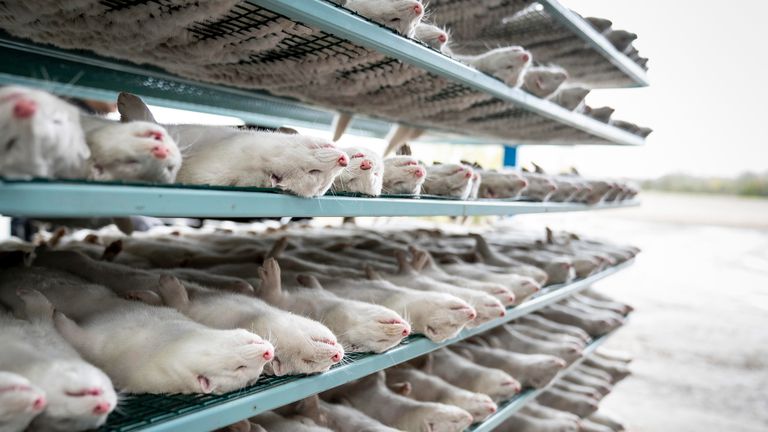RIO DE JANEIRO, BRAZIL – The Government of Denmark has ordered the slaughter of millions of mink after a new mutation of the SARS-CoV-2 coronavirus was detected and spread among farms and infected humans.

There are at least 12 people infected by this new strain of the virus in the Jutland peninsula – the continental part that borders Germany. According to Danish authorities, this version of the virus poses a serious risk to public health, as it could spread across Europe and threaten the effectiveness of future coronavirus vaccines.
On Thursday, the Scandinavian government announced the strict confinement of seven municipalities in the north of the Jutland peninsula due to contagion by this virus strain. The measures affect 280,000 inhabitants. Restaurants, bars, schools, cultural and sports facilities will be closed for at least four weeks, while children’s schools will remain open.
The new virus strain “could have devastating consequences for the pandemic worldwide,” warned Danish Prime Minister Mette Frederiksen in an Internet statement. “A virus that has mutated is at risk of spreading to other countries. The situation is very serious,” she said. The World Health Organization (W.H..O) confirmed on Twitter that it is aware of the virus mutation in Danish minks and that it maintains constant contact with the country’s authorities.
The government has implemented a program for mink farmers to slaughter their animals with the help of the police and the army if required. It is estimated that 17 million animals will need to be culled, the total amount raised each year to supply the country’s fur industry, the world’s top producer. There are over one thousand farms spread across the territory, and in at least 207 of them the transmission of the coronavirus among minks has been detected.
Months ago, the Netherlands found out that the novel coronavirus could be transmitted from mink farmers to animals, and from the latter to humans, which led to a massive slaughter of specimens. In Spain, an outbreak of coronavirus forced the slaughter of almost 10,000 animals from a farm in La Puebla de Valverde, in Teruel, for the same reasons.
One of the factors that can make a virus more dangerous is its passage from one species to another. A single virus entering a cell is capable of producing tens of thousands of copies of itself. The virus needs the biological machinery of its new host to read and copy its genetic sequence -in this case, composed of almost 30,000 RNA letters.
In this process copying errors occur, the mutations, which can change the microorganism’s physiognomy. If these new variants are passed again to another species (in this case, humans), the immune system may not know how to identify them and effectively fight them, even if the individual has been vaccinated against a previous version of the same virus. This is what could happen in Denmark, according to authorities.
The government believes that the new virus strain will continue to spread among people. And that about half of all infected people in North Jutland are already carriers of this new version of the pathogen, according to a report from the Sorological Institute of Denmark.
The document explains that the new mink virus contains up to seven new mutations. All are in the spike protein (known as “S protein”), which forms the virus spikes and serves as a key for it to open the lock of human cells and infect them. Until now, at least 12 people have been reported infected with the variant of the mink virus which has four new mutations in this protein. Four of these people have links with at least three mink farms, reported the Institute.
According to the body, “laboratory studies” have confirmed that people infected with this virus would develop less effective antibodies against this new strain. “This is worrying, since it could potentially affect the efficacy of a future vaccine against Covid-19,” the document states. Many of the vaccines under development seek to ensure that the immune system will learn to recognize the coronavirus S protein. Therefore, it is possible that a new virus with a slightly different S protein could infect people who have been immunized.
The Danish authorities believe that the outbreak began before the summer, probably when a mink farm worker infected an animal. The infection spread rapidly through Jutland’s farms, affecting almost 200 farms. In June, the virus passed from mink to humans and led to several outbreaks in the local population, including in a nursing home. The Institute considers that to maintain activities on these farms poses a serious risk to public health, and therefore recommends the culling of all animals.
The Ministry of Agriculture has published a map with all the affected farms and has set a plan in motion to help farmers who must destroy their animals. The slaughter will cost about EUR 700 million to the public treasury, according to Reuters.

